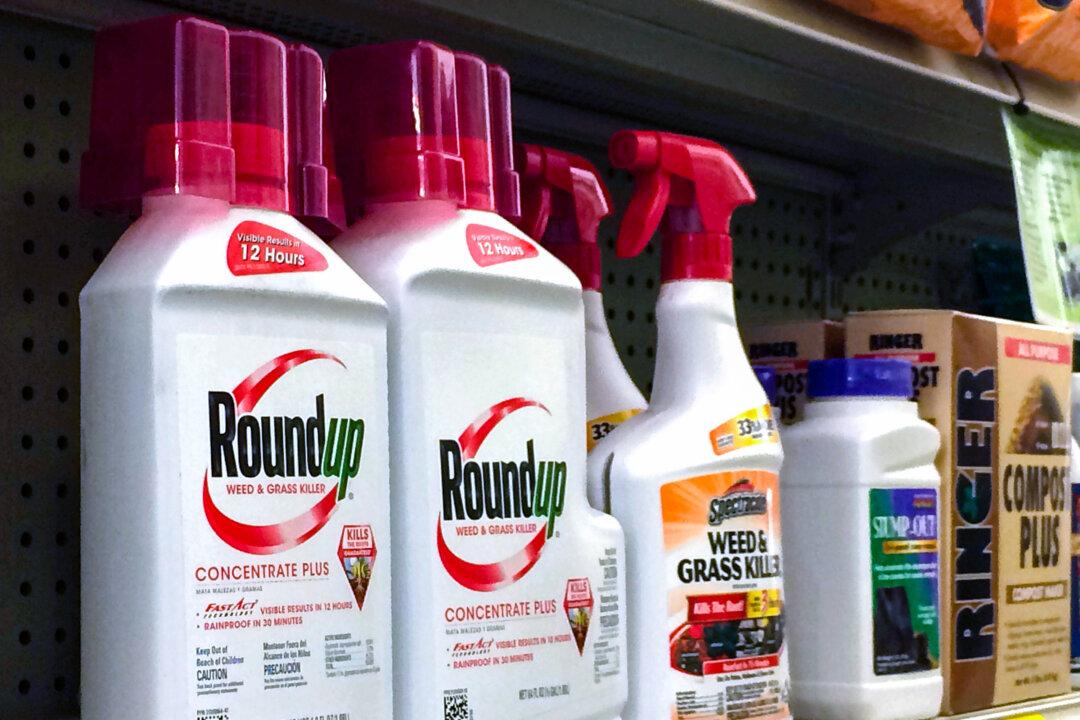A U.S. appeals court ruled that Monsanto-owner Bayer can be shielded from a lawsuit by a Pennsylvania man in the company’s bid to limit liability from claims that its Roundup weed killer causes cancer.
The Philadelphia-based Third U.S. Circuit Court of Appeals on Aug. 15 ruled 3–0 against David Schaffner Jr. and Theresa Sue Schaffner. The couple alleged that Monsanto violated state law by not including a warning about cancer on Roundup’s label.





